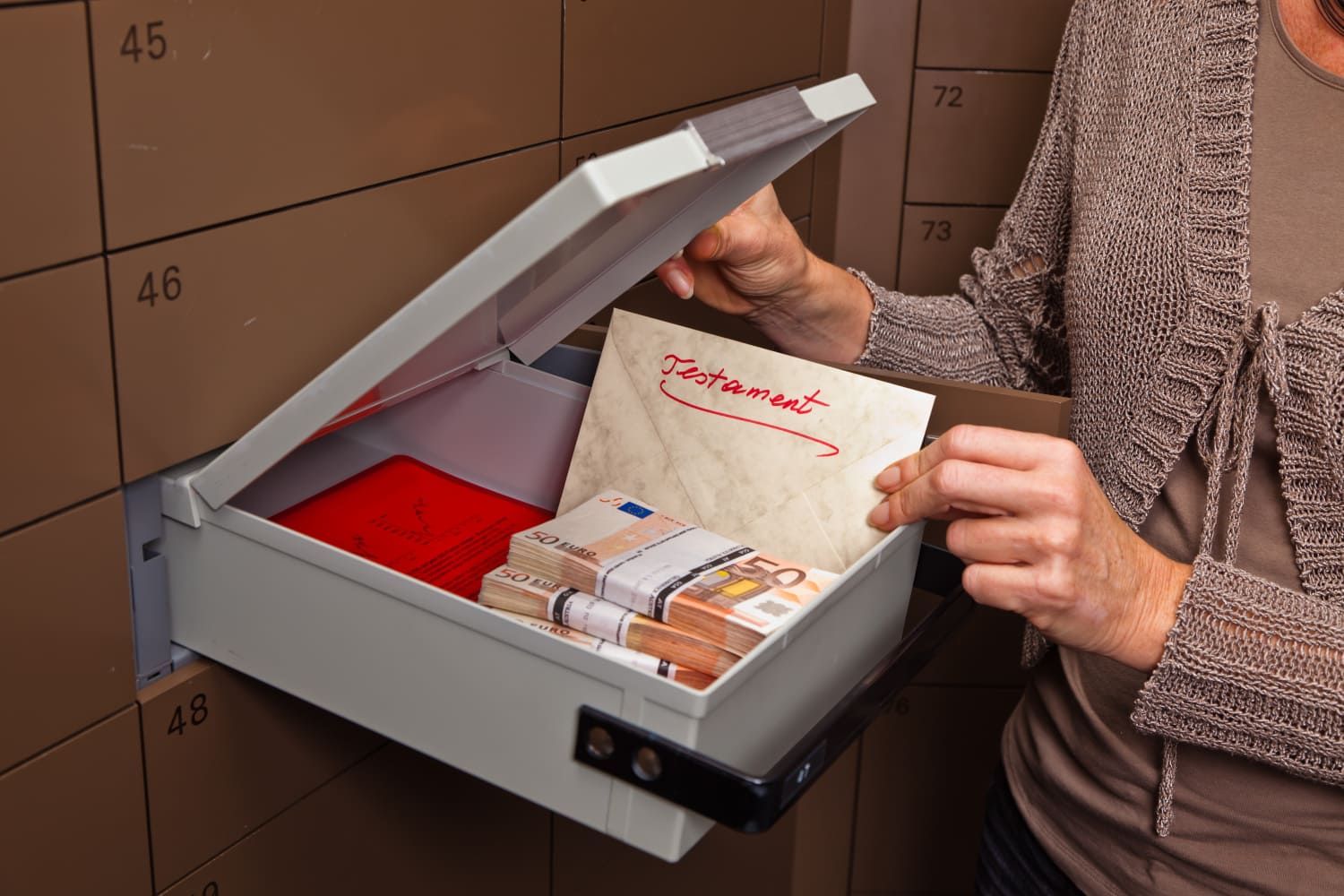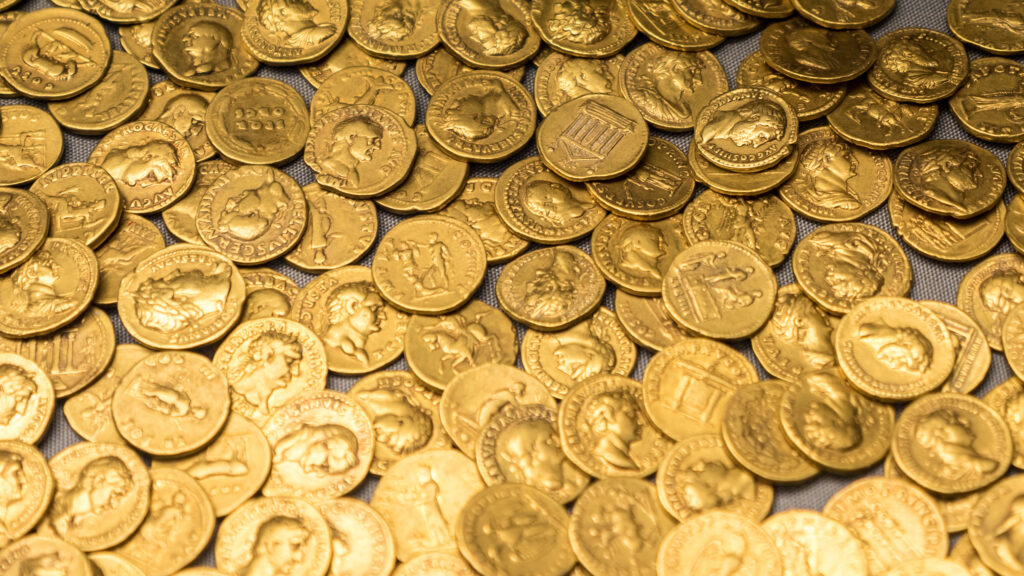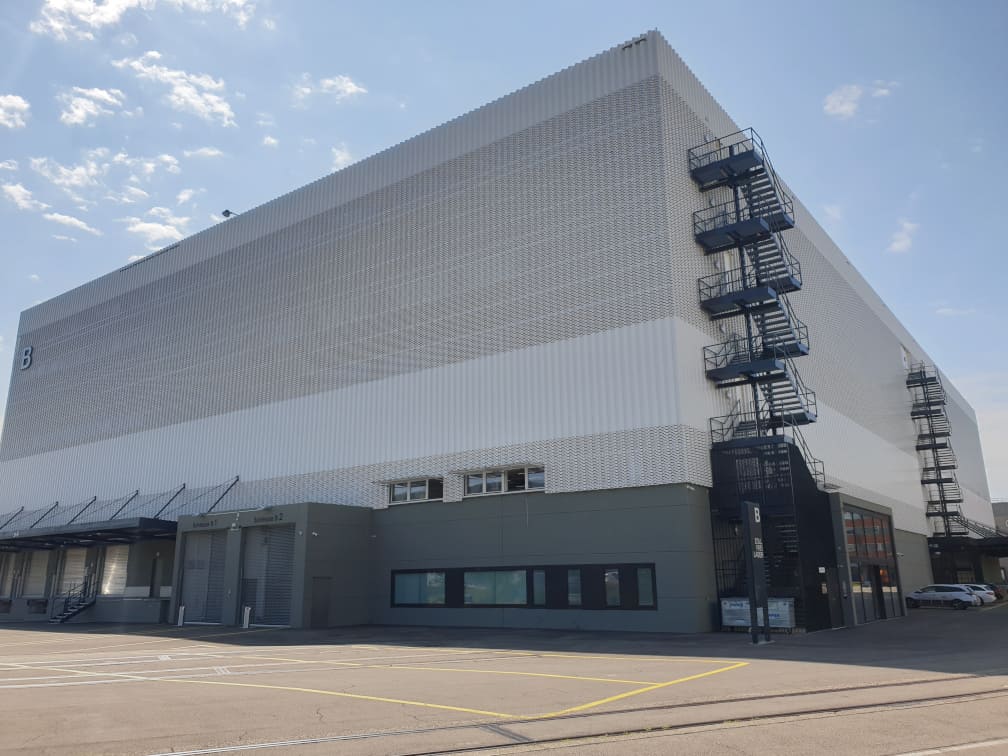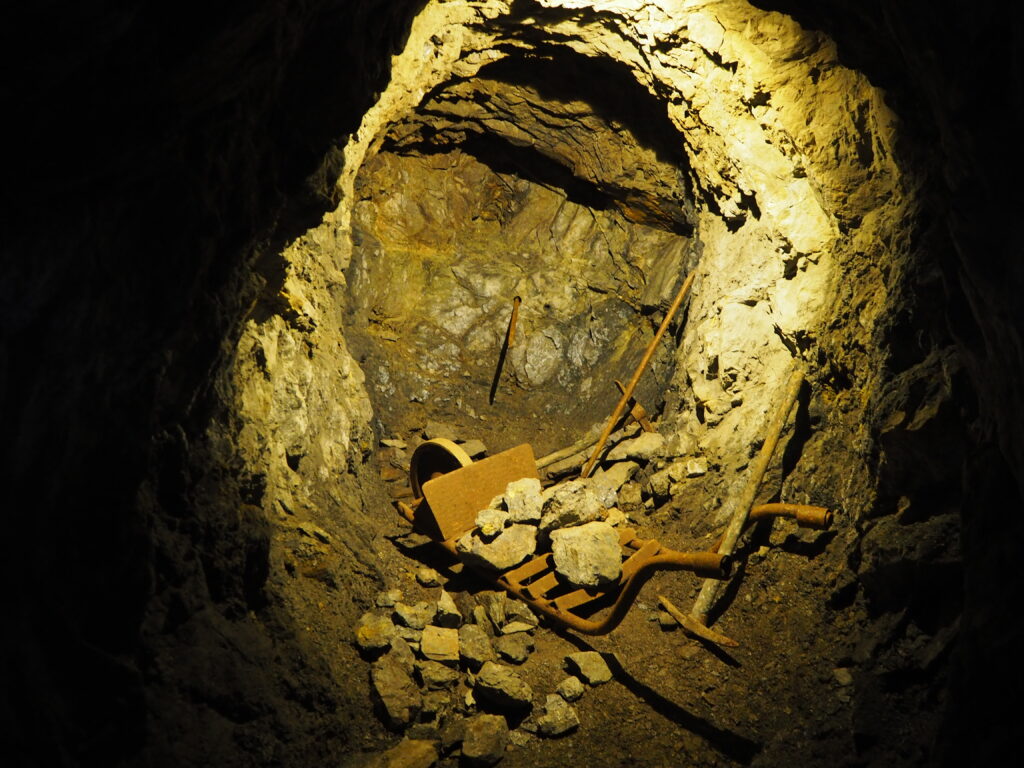What are crypto assets and how are they used?
Cryptocurrencies such as Bitcoin have attracted investors in recent years, sometimes causing rapid price increases. An experimental idea floated 2008 has now evolved into a new asset class. Alongside shares, precious metals and funds, digital money has become an alternative investment product. And there have already been runs on cyber currencies, echoing gold’s reputation as a crisis metal.
The original concept of cryptocurrencies emerged in the 1990s from the first “Proof-of-Work method”, originally developed to avert spam in e-mail traffic. The programmer group responsible were known as “Cypherpunks”, based around the British cryptographer Adam Back. But credit must also go to the enigmatic ‘Satoshi Nakamoto’, who is considered the inventor of Bitcoin protocol. However, this is a pseudonym and the true identity of this figure is still unknown today. For the record, the first official Bitcoin transaction took place in January 2009 – the birth of cryptocurrency.
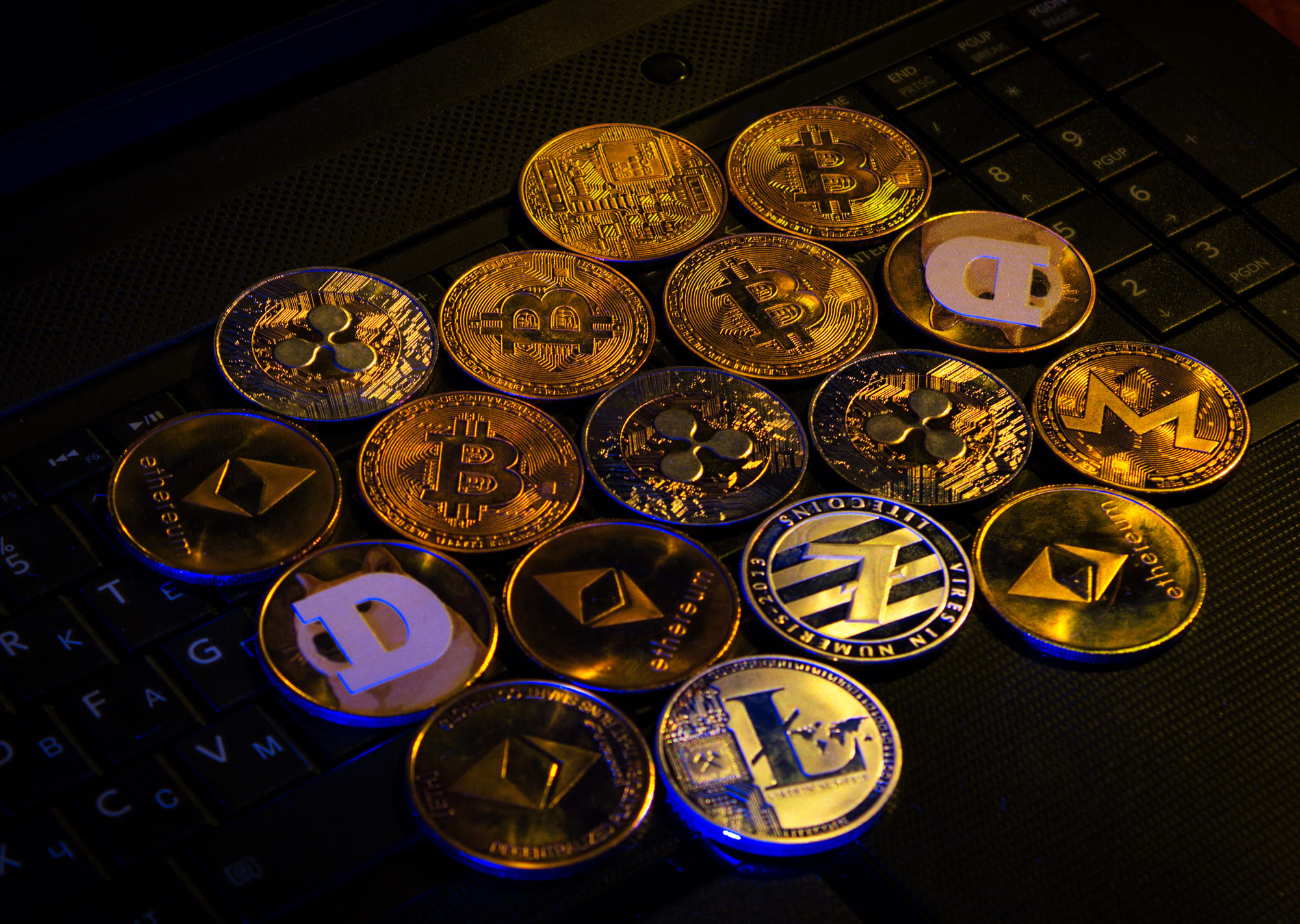
Igor Faun © - stock.adobe.com
Crypto assets – the background
Crypto values, or crypto assets, are values organized and mapped decentrally by what are known as blockchains. These are forgery-proof data structures that remain traceable at all times. This concept also includes digital tokens and digital securities.
Cryptocurrencies are purely digital currencies with no physical equivalent. But just like any classic paper currency, they can be exchanged or traded. However, the majority of digital money is not yet controlled by governments or financial institutions, though much of it is regulated to some extent. The value of cryptocurrency is defined by the forces of supply and demand. In theory at least, almost any programmer can release their own digital currency. This explains why curious varieties such as Cryptokitties, all about virtual cats, have come into existence, and many of these have gained some popularity. Today, there are currently more than 10,000 different cryptocurrencies in total. However, only around 100 of these achieve a significant trading turnover of more than 1,000 Swiss francs per day.
The technical basis of cryptocurrencies
The technical basis of cryptocurrencies is centred on the blockchain. This digital block chain is based on three concepts: The most important element is the public ledger, which can be viewed by all participants and is controlled using the multi-audit principle.
Decentralization serves as the second concept and is designed to ensure that the public ledger can never be manipulated. To achieve this purpose, the ledger is not only stored centrally in one place, but also shared and distributed across the entire network. So each user can keep a copy of the public ledger for themselves.
With Bitcoin, so-called cryptocurrency “miners” work to ensure that every network participant has an identical copy of this public ledger. After a transaction has been verified and a key code has been calculated using the “Proof-of-Work” method, the transfer is then entered in the miner’s ledger. The key code value (also called a “hash”) is then sent to the other network participants.
A less computationally intensive alternative to “Proof-of-Work” is the “Proof-of-Stake”, which is increasingly used today. With this consensus mechanism, the computing power of a miner is no longer the decisive element, but a type of lottery is used to determine which node can mine the current block.
Detailed information on how the “Proof-of-Work” or “Proof-of-Stake” operate can be found in abundance on the Internet.
Cryptocurrencies are offered via their own digital exchanges. On these markets, investors can define how many francs they require to buy or sell Bitcoin, Ether or Stablecoins. Payment is usually made by credit card or a prior bank transfer. One of the best-known crypto exchange platforms is Coinbase from the USA, which is recognised in 32 countries. Bitcoin Suisse AG, for example, is based in Switzerland.
Investors who rely on crypto assets to accumulate wealth can have their assets managed directly by the exchange. However, storing cryptocurrency in an exchange wallet as part of the provider’s account does expose an investor to certain risks (e.g. counterparty defaults and the risk of hacking attacks). Alternatively, crypto coins can be transferred to a personal (digital) wallet. Furthermore, the all-important individual codes can be stored on several devices or data carriers at the same time – for example, using so-called hard wallets or USB storage media. These elements usually remain offline and can therefore be stored separately.
- To learn how to keep your Bitcoin and crypto assets safe, see the section below about “Keeping Cryptocurrency Secure”.
Today’s most popular cryptocurrencies
According to the CoinMarketCap survey from March 2022, Bitcoin (abbreviation BTC) is not only the first and oldest cryptocurrency in the world, but also the most successful. Second place is occupied by Ethereum (Ether, ETH), just ahead of Tether (USDT). Binance Coin (BNB), USD Coin (USDC), Ripple (XRP) or Cardano (ADA) are also among the top 10 most important cryptocurrencies.
The current market values of cryptocurrencies can be extremely volatile, so the top 10 are therefore in a constant state of flux.
In addition to Bitcoin and Ethereum, other digital currencies popular in Switzerland include Bitcoin Cash (BCH), Litecoin (LTC) and Tezos (XTZ).
Difference between Bitcoin and Altcoin
Investors interested in crypto assets will sooner or later stumble across the term “altcoin”. This is not a term describing another new digital currency, but a definition which describes alternatives to Bitcoin. It is derived from the amalgamation of the terms ‘Bitcoin’ and ‘Alternative’. Generally speaking, altcoin is usually taken to mean all cryptocurrencies other than Bitcoin. However, note that a cryptocurrency in the altcoin category, for example, is based on the original Bitcoin source code and thus fulfils the same function as Bitcoin.
The best-known altcoins include Ripple (XRP), EOS, Litecoin (LTC), Bitcoin Cash (BCT) and Stellar (XLM). However, Ether itself is not one of the altcoins, because it has an independent blockchain as part of the Ethereum network and offers different functions to those of Bitcoin. Ether miners, for example, may charge a fee for confirming transactions. In addition, the amount of Ether coinage that can be released is unlimited. In the case of Bitcoin, the supply is limited and amounts to a maximum of 21 million coins, which creates a deliberate shortage. Both Bitcoin and Ether are virtual currencies that can be actively used as investments, to pay for services, and to fulfil contracts.
Crypto versus fiat money: differences and importance
The term fiat money is also often mentioned in connection with cryptocurrencies. In contrast to the virtual cryptocurrency, however, fiat monies are the classic national currencies such as Swiss francs, US dollars or euros. They have no intrinsic value and are issued by central banks. Unlike fiat currencies, cryptocurrencies do not necessarily have to be accepted as a means of payment in a specific currency area. So while a company must accept the local currency, that company is still free to offer customers the option to pay in cryptocurrency.
On the other hand, cryptocurrencies can assume a special importance in certain geopolitical trouble spots. However, the purchase of Bitcoin, Ether or stablecoins in large volumes is only possible through official channels. To make matters worse, important supplies such as food or raw materials can rarely be bought with digital money. Once again, such purchases are generally only possible without restrictions when using fiat money. And any currency exchange of crypto-assets into any form of fiat money is likely to be very difficult to realize without supervision, principally because of existing anti-money-laundering laws.
The regulation of cryptocurrencies in Switzerland
While the regulation of crypto funds is now under discussion worldwide, Switzerland has already gone a few steps further. The independent Swiss state is considered a particularly crypto-friendly jurisdiction. In Swiss law, cryptocurrencies are defined as a virtual asset or digital representation of value. There are no restrictions on buying or selling cryptocurrency. However, brokerage services are subject to the Swiss Financial Market Supervisory Authority (FINMA).
The taxation of cryptocurrencies is also already regulated. Virtual money is considered a normal currency, so currency gains are tax-free in Switzerland, as are other capital gains. However, where digital money has currency status it will also become subject to wealth tax and therefore must be declared.
Please note: This article does not claim to be complete, nor does it explicitly constitute legal advice, and thus is published for guidance only. To obtain legally binding information, we recommend that you contact a lawyer of your choice and seek information from the Federal Department of Finance and/or your trustee.
Store cryptocurrency securely with Swiss Gold Safe
Many cryptocurrency investors simply allow their private keys to be managed by the respective exchange. However, this has the obvious disadvantage that crypto holders do not actually have possession of their Bitcoins etc. So, in the event of a hacking attack or some kind of server failure, crypto investors may only have limited access to their digital currency – or perhaps none at all.
But as previously mentioned, you can make alternative arrangements to store crypto assets separately. To do this, the corresponding private keys enabling access to the digital value must first be saved to or managed via a hardware wallet. This so-called crypto wallet, or digital wallet, can be a USB data storage device. Ideally, your USB stick or USB hard drive should have a large data-storage capacity. However, unlike most classic data-saving devices, crypto wallets are designed so they cannot connect to the Internet. This means your crypto codes are only saved on the storage medium provided, and cannot be accessed via an online network.
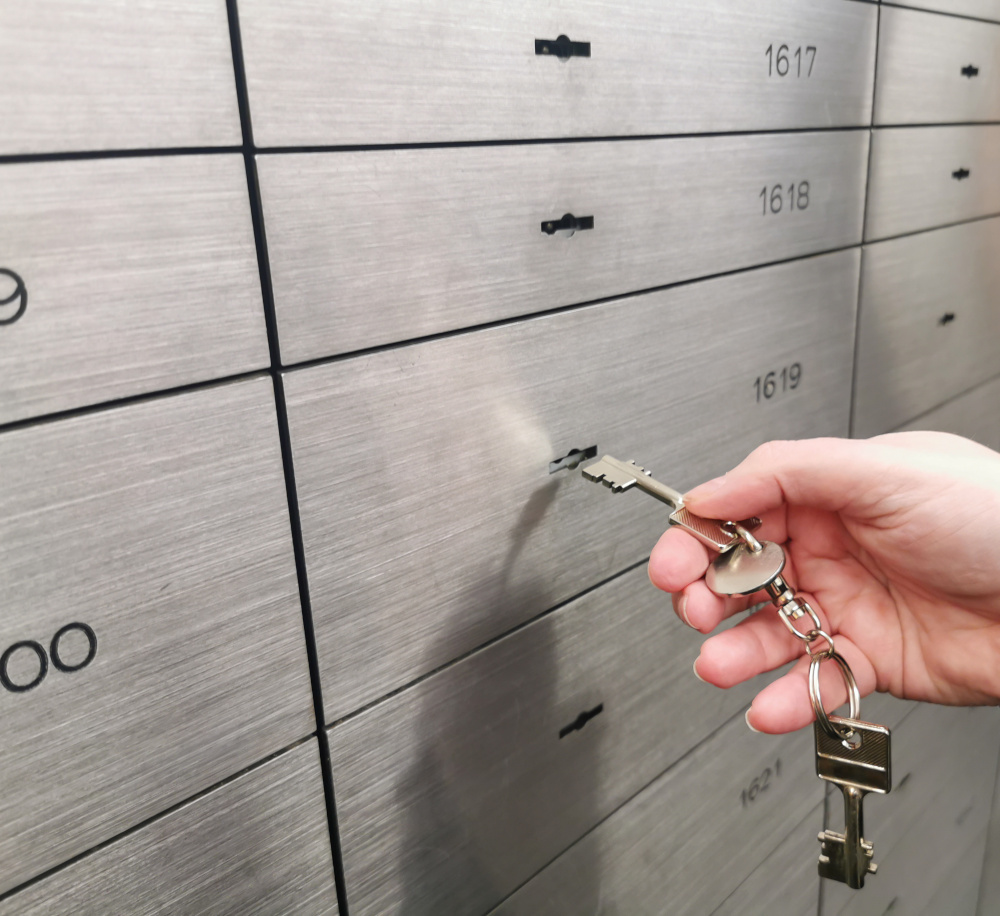
ShDrohnenFly © - stock.adobe.com
Depending on the capacity of your storage media and the amount of key codes it can store, a hardware wallet can potentially hold a lot of value. In order to protect these assets, your crypto hard wallet should therefore be stored as securely as possible. To meet this particular purpose, the specialist storage provider Swiss Gold Safe offers bank-independent safe deposit boxes in Switzerland and the Principality of Liechtenstein for the use of national and international clients. The safe deposit boxes are located inside modern, ultra-secure safe systems designed to meet the strictest security standards. This means losses due to burglary or destruction by fire or other unexpected events are effectively reduced to a minimum. You can find more details about storing hardware wallets in the article about secure storage of Bitcoin and crypto assets.
- Incidentally: In addition to other payment methods, the annual fee for a safe deposit box at Swiss Gold Safe can also be conveniently settled in Bitcoin, Ether or Stablecoins.
An overview of useful information about cryptocurrencies:
- Cryptocurrencies have been around since 2009 when the first transaction was made using Bitcoin.
- Purely digital currency is organized via blockchains and consists of individual codes.
- Crypto assets are available via digital exchanges, which will also undertake the administration. Alternatively, the codes can be transferred to personal wallets.
- Swiss Gold Safe offer safe deposit boxes, for example, which are very suitable for the secure storage of crypto wallets.
- The most well-known crypto assets include Bitcoin, Ether and BNB.
- Crypto currencies can be exchanged for fiat money. However, such transactions will always be subject to anti-money laundering laws.
- In Switzerland, for example, providers of cryptocurrency trading facilities are controlled by the Swiss Financial Market Supervisory Authority.
- Swiss Gold Safe offers safe deposit boxes in Switzerland and the Principality of Liechtenstein suitable for the secure storage of crypto hard wallets.
- Private safe deposit boxes are managed independently of banks. The annual fees can also be paid in cryptocurrency.


